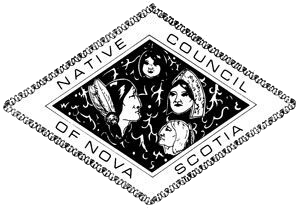Consequences of European Wars for Supremacy
By sharp contrast to the earlier contact and relationship periods up to the early 1700’s, the French and English wars in the 1700’s in North America for supremacy altered the relationship with the Mi’kmaq People. In a period of less than seventy-five years (1713 – 1786), the diminished French interests by the late 1700’s, the reducing English power influence by the late 1700’s, and the subsequent American Colonial Revolution eventually ousting significant English interests over vast territories in North America, revealed a dramatic shift in relationships clearly apparent to the Mi’kmaq.
For the Mi’kmaq of Mi’kma’ki, the remaining English Colonial decision makers of the Colony of Nova Scotia; as elsewhere, attempted to subjugate the Mi’kmaq People by every manner of relationship violation. Attempts at territorial dispossession, diminishing recognition of the Mi’kmaq as a People, and intrusive control, became the Colonial Indian policy. An era for strained relationships, mistrust and violation of the rights of a People developed and exists to the present.
The horrible events and their consequences promoted by Colonial decision makers actions, based on a policy to subjugate the Mi’kmaq People, remain evident to this day. The calamity and legacy of these actions continue to shame the peoples of Canada. We as Aboriginal Peoples continue to endure and live with the evidence of social and economic disadvantage, constant prejudice, stereotype and political vulnerability. We remain marginalized for no other reason than our continuum as the Mi’kmaq People on our traditional ancestral homelands of Mi’kma’ki.
The continuing policy of government superiority, purporting Mi’kmaq inferiority, consistently applied for the last two hundred years, has taken a tremendous toll and human suffering endured by the Mi’kmaq. An inspiring example of the strength and determination of the Mi’kmaq, the Mi’kmaq remain to this day, as does our bond to our ancestral homelands of Mi’kma’ki, never surrendered.
In the 1820’s the Colonial Government violated the Crown’s early relationship promises “to reserve all lands not legally purchased or surrendered from the Mi’kmaq to remain for the continuing benefit of the Indians”. The Colonial Governments turned lands reserved for the Indians into “Indian Reserves” in an attempt to displace the Mi’kmaq from their lands for the benefit of Colonial settlers. This sinister “reserve scheme” was first introduced in Nova Scotia and refined over the years to spread across Canada, and remains to this day.
The attempt to “put the Indian in his place” forced relocation and dispossession from traditional ancestral homelands, and the attempt to “wean the Indian from his lands and resources” remain the guiding theme of Indian Policy in Canada to this very day.
The Colonial Government violated the Crown’s promise of “not interfering in Indian autonomy and the Indian’s distinctive culture as a people”. This colonial policy was guised as an attempt to gradually civilize, acculturate and deny recognition and identity of the Mi’kmaq people. Today the Government of the Crown assumes the role of protector while enforcing its Government created “list registry” on the Indians. This scheme of “Registering Indians” was refined over the years, and remains the guiding list for government policy decisions to this very day. A Government Department did and continues to administratively “define who an Indian is”, “deny a birth right identity” and “put the Indian in his place”, all in an attempt to deny the recognition of the Mi’kmaq person and the Mi’kmaq Nation of People and its homeland of Mi’kma’ki.
These Government actions, schemes with singular purpose, carry forward and still remain the cornerstone of Canadian Indian Policy and Indian Administrative Measures codified in canadian legislation as the Indian Act. This policy of a by-gone era remains the greatest source of human rights violations, shame, calamity and ongoing concern both within and outside of Canada. This policy is now drawing international notice, and forms a basis for United Nations fact finding missions to Canada and countless Court challenges by Aboriginal peoples.
